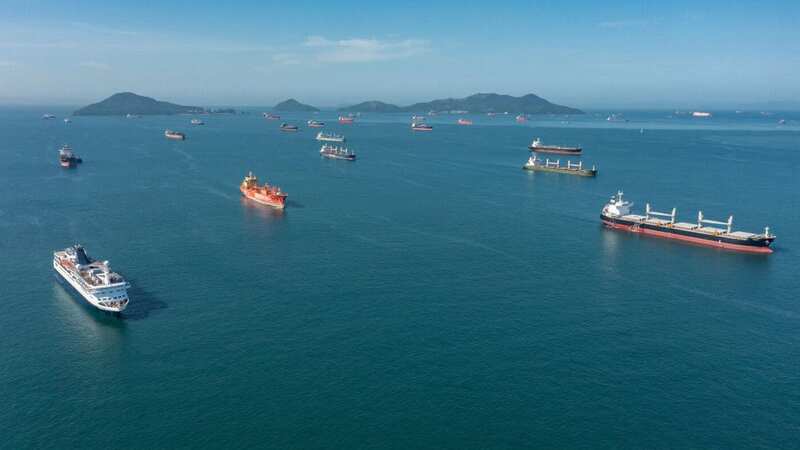UN trade body warns of global trade disruptions, surging costs

The United Nations has warned that global trade is being disrupted by attacks in the Red Sea, the war in Ukraine, and low water levels in the Panama Canal.
Jan Hoffmann, a trade expert at the United Nations Conference on Trade and Development (UNCTAD), said that shipping costs have surged and energy and food costs are being affected, raising inflation risks. Since November, Yemen's Houthi rebels have launched at least 34 attacks on ships in the Red Sea, leading to major players in the shipping industry temporarily halting use of Egypt's Suez Canal.
This critical waterway, which connects the Mediterranean Sea to the Red Sea, handled 12% to 15% of global trade in 2023, but UNCTAD estimates that the trade volume going through the canal dropped by 42% over the last two months. Hoffmann, a top official at UNCTAD in Geneva, told reporters during a video press conference that the Houthi attacks are happening when other major trade routes are already under pressure.
He explained that the ongoing war since Russia's invasion of Ukraine on Feb. 24, 2022, and other geopolitical tensions have altered oil and grain trade routes, including those through the Black Sea. Adding to the woes of shipping companies, Hoffmann revealed that severe drought has caused water levels in the Panama Canal to drop to their lowest in decades.
This has drastically reduced the number and size of ships that can pass through it. He shared that total transits through the Panama Canal in December were 36% lower than a year ago, and 62% lower than two years ago.
 Ukraine claims it's killed 130,000 Russian troops in year since Putin invaded
Ukraine claims it's killed 130,000 Russian troops in year since Putin invaded
Hoffmann pointed out that ships transport around 80% of the goods in world trade, and this percentage is even higher for developing countries. However, he warned that the crisis in the Red Sea is causing significant disruptions in the shipment of grains and other key commodities from Europe, Russia and Ukraine.
This is leading to increased costs for consumers and posing serious risks to global food security. He emphasised that this is particularly true in regions like East Africa, South Asia, Southeast Asia and East Asia, which heavily rely on wheat imports from Europe and the Black Sea area.
Hoffmann revealed that early data from 2024 shows over 300 container vessels, which is more than 20% of global container capacity, are seeking alternatives to using the Suez Canal. Many are choosing to go around Africa's Cape of Good Hope, even though it's a longer and pricier trip. He also mentioned that ships carrying liquified natural gas have completely stopped using the Suez Canal due to fears of an attack.
Speaking about costs, Hoffmann said that average container shipping spot rates from Shanghai have rocketed by 122% since early December. Rates from Shanghai to Europe have soared by 256%, and rates to the U.S. west coast have increased by 162%. "Here you see the global impact of the crisis, as ships are seeking alternative routes, avoiding the Suez and the Panama Canal," Hoffmann said.
* An AI tool was used to add an extra layer to the editing process for this story. You can report any errors to webhomepage@mirror.co.uk
Read more similar news:
Comments:
comments powered by Disqus

































